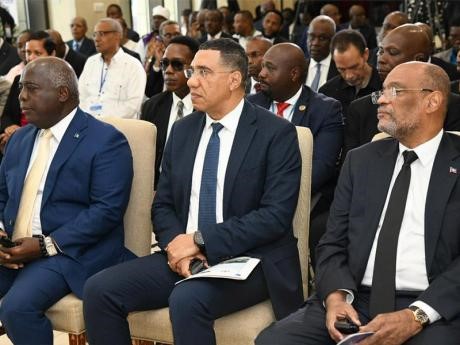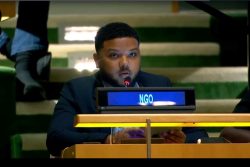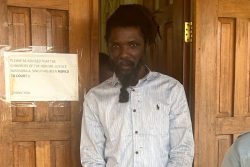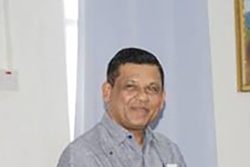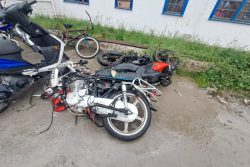(Jamaica Gleaner) Haitian Prime Minister Ariel Henry says he is attending crisis talks in Jamaica ‘to listen’ and help determine how the country can rebuilding from the latest rounds of political and economic turmoil.
“We did not come here to negotiate for another agreement. We are here to listen… talk about… the next steps we have to take to rebuild our democracy,” Henry said yesterday morning at the Liberty Hall at the Ministry of Foreign Affairs and Foreign Trade in downtown Kingston.
Henry noted that agreements have struck in the past and acknowledged that critics may also point to previous consultations involving political and civil society stakeholders.
The three-day consultation involves representatives from various groups in the French-speaking CARICOM country of more than 12 million people. It is being facilitated by CARICOM’s Eminent Persons Group – Bruce Golding (Jamaica), Perry Christie (Bahamas) and Dr Kenny Anthony (St Lucia) – all former prime ministers.
Speaking on behalf of the group, Golding said he hopes the Haitian representatives will see Jamaica as a “comfortable space in which to wrestle” with the challenges confronting their society.
“Yes, the discussions will most likely be contentious at times. Yes, ideas will be put forward that will attract criticism and objection. Yes, each of you must have the opportunity to put forward your positions firmly. We ask only that it be done respectfully, with a willingness not just to listen to contending views but to consider their merits before brushing them aside,” he said.
CARICOM Secretary General Dr Carla Barnett said the meeting “will enable the dialogue necessary to develop a roadmap towards a Haitian-led solution”. She continued: “Let it be very clear Haiti is important to CARICOM. Haiti is our single largest member state; Haiti is the first free Black republic in the world, the first independent state in the Caribbean and the second independent state in the Western Hemisphere.”
Prime Minister Andrew Holness, who has been leading CARICOM’s response to the Haitian situation, said Jamaica is “honoured” to host the parties “at a time when dialogue, at the highest possible level, is essential, necessary and critical to achieving consensus”.
“We recognise the importance of making every effort to find solutions,” he added. These latest consultations are resulting from a CARICOM delegation Holness led to Haiti in February for high-level talks with government officials and members of civil society.
During a visit to Jamaica last month, United Nations Secretary-General Antonio Guterres acknowledged that Jamaica was the first country to have expressed a willingness to be part of an international police force to quell the bloodletting in the State that is torn by gang warfare and political upheavals. But he said there has been a reluctance on the part of the countries that have a stronger capacity to be able to lead this kind of operation.
Guterres said the reluctance by the international community to intervene can only be addressed by putting in place a political process that is credible. That is why the Jamaican initiative is so important, he said.
Powerful gangs have been infiltrating once peaceful communities in the Haitian capital and beyond, with experts estimating that they control more about 60 per cent of the capital Port-au-Prince.
They have pillaged neighbourhoods, raped adults and children and kidnapped hundreds of victims ranging from US missionaries to a hot dog street vendor in a bid to control more territory, with violence worsening since the July 2021 assassination of President Jovenel Moïse.
Haiti has failed to hold elections since Moïse’s murder and Henry assumed power shortly after, promising that his administration would do so.
In early January, the terms of the remaining 10 senators expired, leaving no elected officials in place.
Caribbean leaders have also complained about a surge in migrants that they say is straining the budgets of small islands struggling with the influx of hundreds of Haitians.
Haiti is the poorest country in the Latin America and the Caribbean region and among the poorest countries in the world. Recent flooding and an earthquake have exacerbated problems.
-The Associated Press and Ainsworth Morris contributed to this report.
